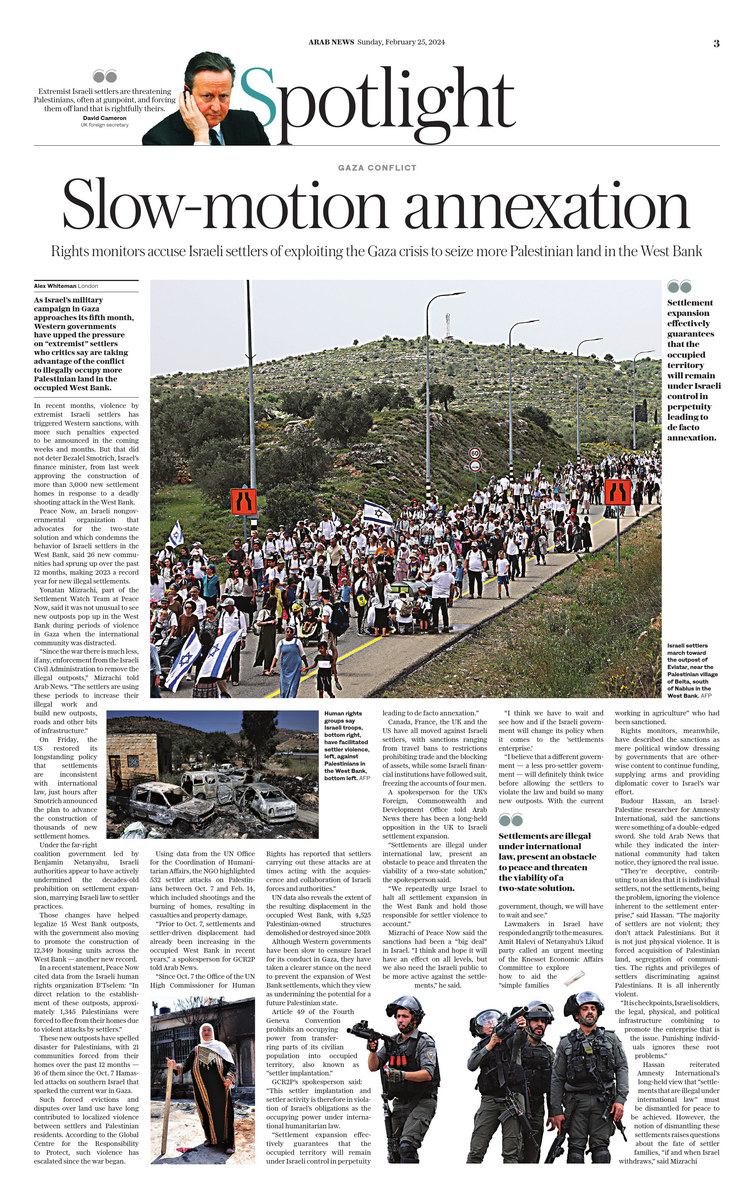LONDON: As Israel’s military campaign in Gaza approaches its sixth month, Western governments have upped the pressure on “extremist” settlers who critics say are taking advantage of the conflict to illegally occupy more Palestinian land in the occupied West Bank.
In recent months, violence by extremist Israeli settlers has triggered Western sanctions, with more such penalties expected to be announced in the coming weeks and months. But that did not deter Bezalel Smotrich, Israel’s finance minister, from approving last week the construction of more than 3,000 new settlement homes in response to a deadly shooting attack in the West Bank.
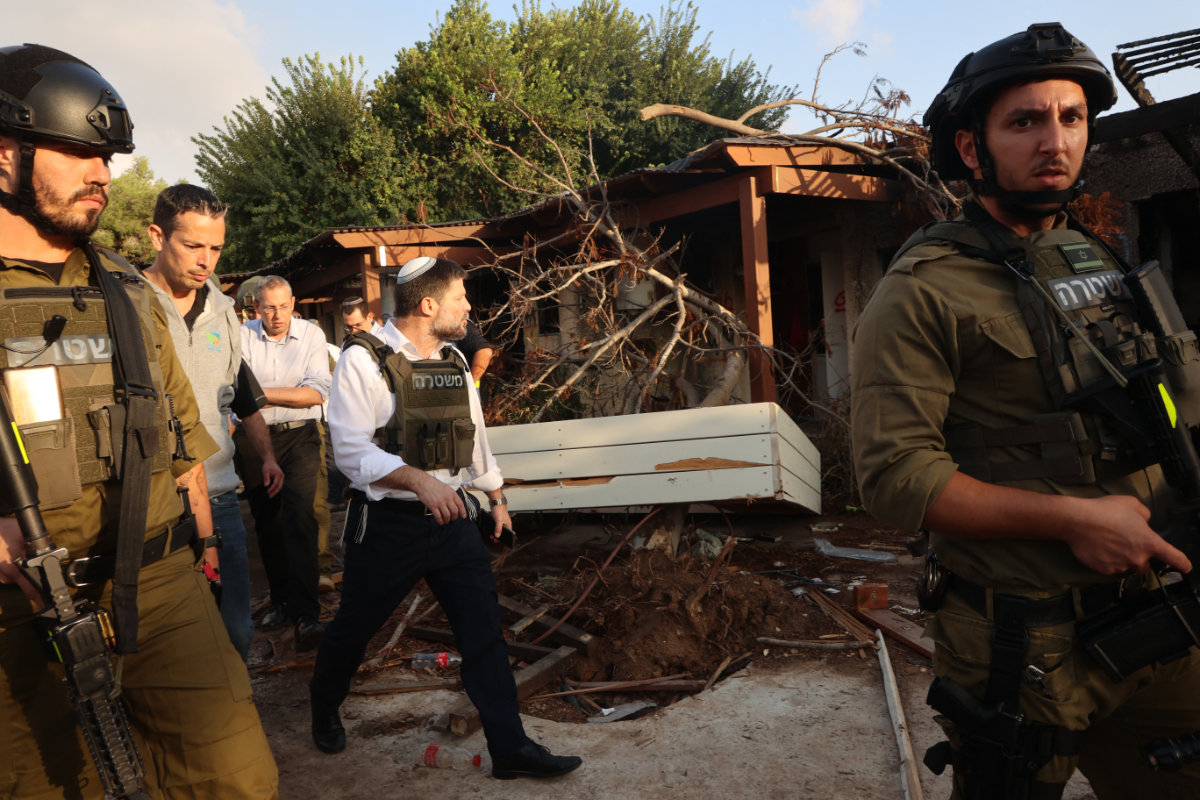
Far-right Israeli Finance Minister Bezalel Smotrich, shown in this photo walks with soldiers during a visit to Kibbutz Kfar Aza near the border with the Gaza Strip on November 14, 2023, has approved the construction of more than 3,000 new settlement homes in the West Bank. (AFP/File)
Peace Now, an Israeli nongovernmental organization that advocates for the two-state solution and which condemns the behavior of Israeli settlers in the West Bank, said 26 new communities had sprung up over the past 12 months, making 2023 a record year for new illegal settlements.
Yonatan Mizrachi, part of the Settlement Watch Team at Peace Now, said it was not unusual to see new outposts pop up in the West Bank during periods of violence in Gaza when the international community was distracted.
“Since the war there is much less, if any, enforcement from the Israeli Civil Administration to remove the illegal outposts,” Mizrachi told Arab News. “The settlers are using these periods to increase their illegal work and build new outposts, roads and other bits of infrastructure.”
On Friday, the US restored its longstanding policy that settlements are inconsistent with international law, just hours after Smotrich announced the plan to advance the construction of thousands of new settlement homes.
“It’s been long-standing US policy under Republican and Democratic administrations alike that new settlements are counterproductive to reaching an enduring peace,” Antony Blinken, the US secretary of state, said on Friday.
The approval of a record number of settlement homes last year and the expansion of settler presence in the West Bank led the Biden administration to summon the Israeli ambassador in Washington for the first time in over a decade.
Under the far-right coalition government led by Benjamin Netanyahu, Israeli authorities appear to have actively undermined the decades-old prohibition on settlement expansion, marrying Israeli law to settler practices.
Those changes have helped legalize 15 West Bank outposts, with the government also moving to promote the construction of 12,349 housing units across the West Bank — another new record.

A view of an unauthorized Israeli settler outpost of Meitarim Farm near Hebron city in the occupied West Bank. (AFP)
In a recent statement, Peace Now cited data from the Israeli human rights organization B’Tselem: “In direct relation to the establishment of these outposts, approximately 1,345 Palestinians were forced to flee from their homes due to violent attacks by settlers.”
These new outposts have spelled disaster for Palestinians, with 21 communities forced from their homes over the past 12 months — 16 of them since the Oct. 7 Hamas-led attacks on southern Israel that sparked the current war in Gaza.
Such forced evictions and disputes over land use have long contributed to localized violence between settlers and Palestinian residents. According to the Global Centre for the Responsibility to Protect, such violence has escalated since the war began.
Using data from the UN Office for the Coordination of Humanitarian Affairs, the NGO highlighted 532 settler attacks on Palestinians between Oct. 7 and Feb. 14, which included shootings and the burning of homes, resulting in casualties and property damage.
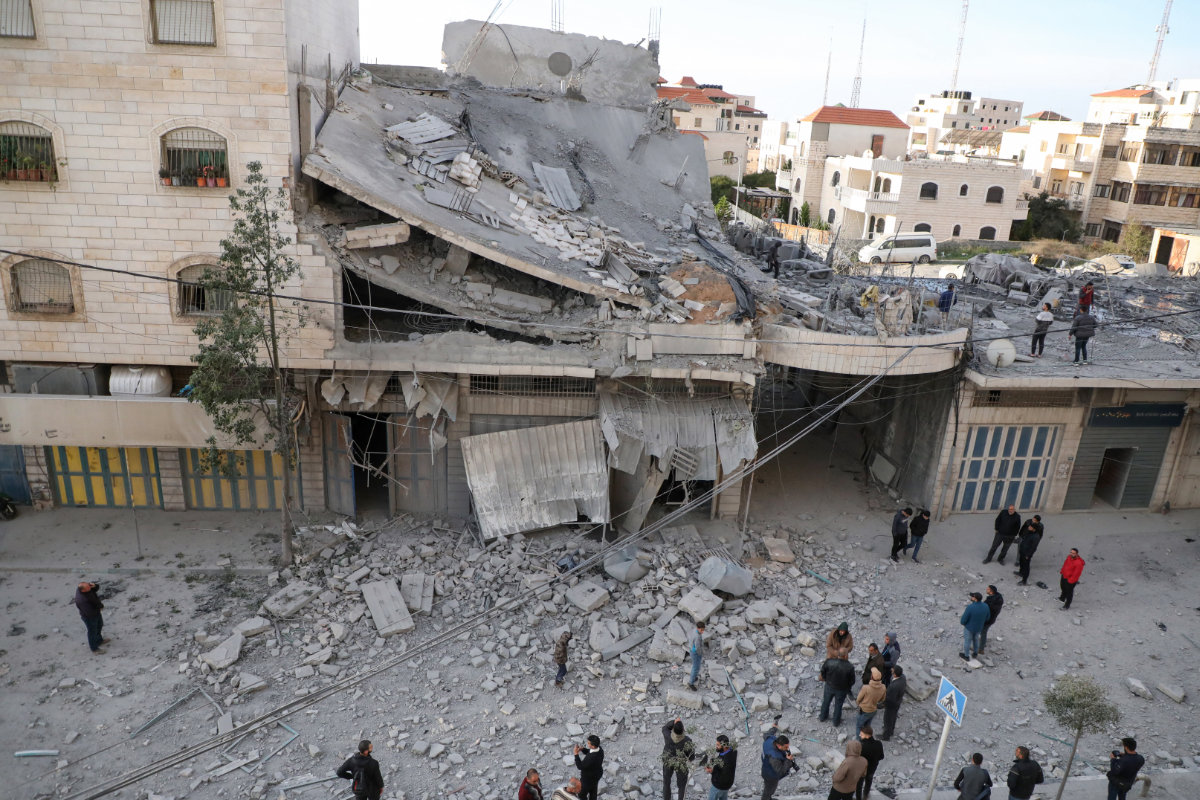
Palestinians gather near the rubble of a family home demolished by Israeli forces earlier during a raid in Hebron city in the occupied West Bank on January 21, 2024. (AFP)
“Prior to Oct. 7, settlements and settler-driven displacement had already been increasing in the occupied West Bank in recent years,” a spokesperson for GCR2P told Arab News.
“Since Oct. 7 the Office of the UN High Commissioner for Human Rights has reported that settlers carrying out these attacks are at times acting with the acquiescence and collaboration of Israeli forces and authorities.”
UN data also reveals the extent of the resulting displacement in the occupied West Bank, with 4,525 Palestinian-owned structures demolished or destroyed since 2019.
INNUMBERS
• 26 Israeli settlements established in the West Bank in 2023 alone — a new annual record.
• 21 Palestinian communities displaced over the past 12 months — 16 of them since Oct. 7.
• 532 Recorded settler attacks on Palestinians between Oct. 7 and Feb. 14.
Source: Peace Now, OCHA
Although Western governments have been slow to censure Israel for its conduct in Gaza, they have taken a clearer stance on the need to prevent the expansion of West Bank settlements, which they view as undermining the potential for a future Palestinian state.
Article 49 of the Fourth Geneva Convention prohibits an occupying power from transferring parts of its civilian population into occupied territory, also known as “settler implantation.”
GCR2P’s spokesperson said: “This settler implantation and settler activity is therefore in violation of Israel’s obligations as the occupying power under international humanitarian law.
“Settlement expansion effectively guarantees that the occupied territory will remain under Israeli control in perpetuity leading to de facto annexation.”
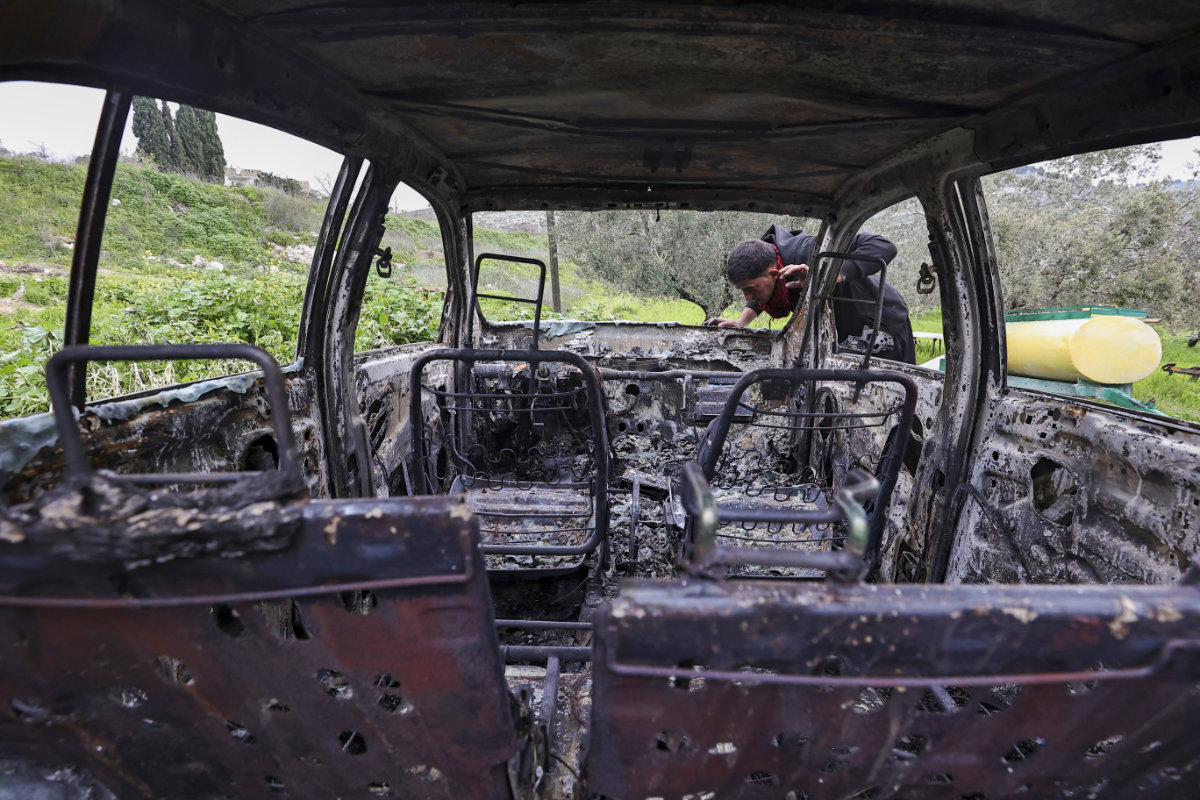
A Palestinian man inspects a car burnt in an attack the previous night by Israeli settlers in the village of Burqa, northwest of Nablus in the occupied West Bank, on February 20, 2024. Around 490,000 Israelis live in dozens of West Bank settlements that are deemed illegal under international law. (AFP)
Canada, France, the UK and the US have all moved against Israeli settlers, with sanctions ranging from travel bans to restrictions prohibiting trade and the blocking of assets, while some Israeli financial institutions have followed suit, freezing the accounts of four men.
A spokesperson for the UK’s Foreign, Commonwealth and Development Office told Arab News there has been a long-held opposition in the UK to Israeli settlement expansion.
“Settlements are illegal under international law, present an obstacle to peace and threaten the viability of a two-state solution,” the spokesperson said.
“We repeatedly urge Israel to halt all settlement expansion in the West Bank and hold those responsible for settler violence to account.”
Announcing sanctions against four “extremist” settlers on Feb. 14, David Cameron, the UK’s foreign secretary, said: “Israel must also take stronger action to put a stop to settler violence.”
Mizrachi of Peace Now said the sanctions had been a “big deal” in Israel. “I think and hope it will have an effect on all levels, but we also need the Israeli public to be more active against the settlements,” he said.
“I think we have to wait and see how and if the Israeli government will change its policy when it comes to the ‘settlements enterprise.’
“I believe that a different government — a less pro-settler government — will definitely think twice before allowing the settlers to violate the law and build so many new outposts. With the current government, though, we will have to wait and see.”
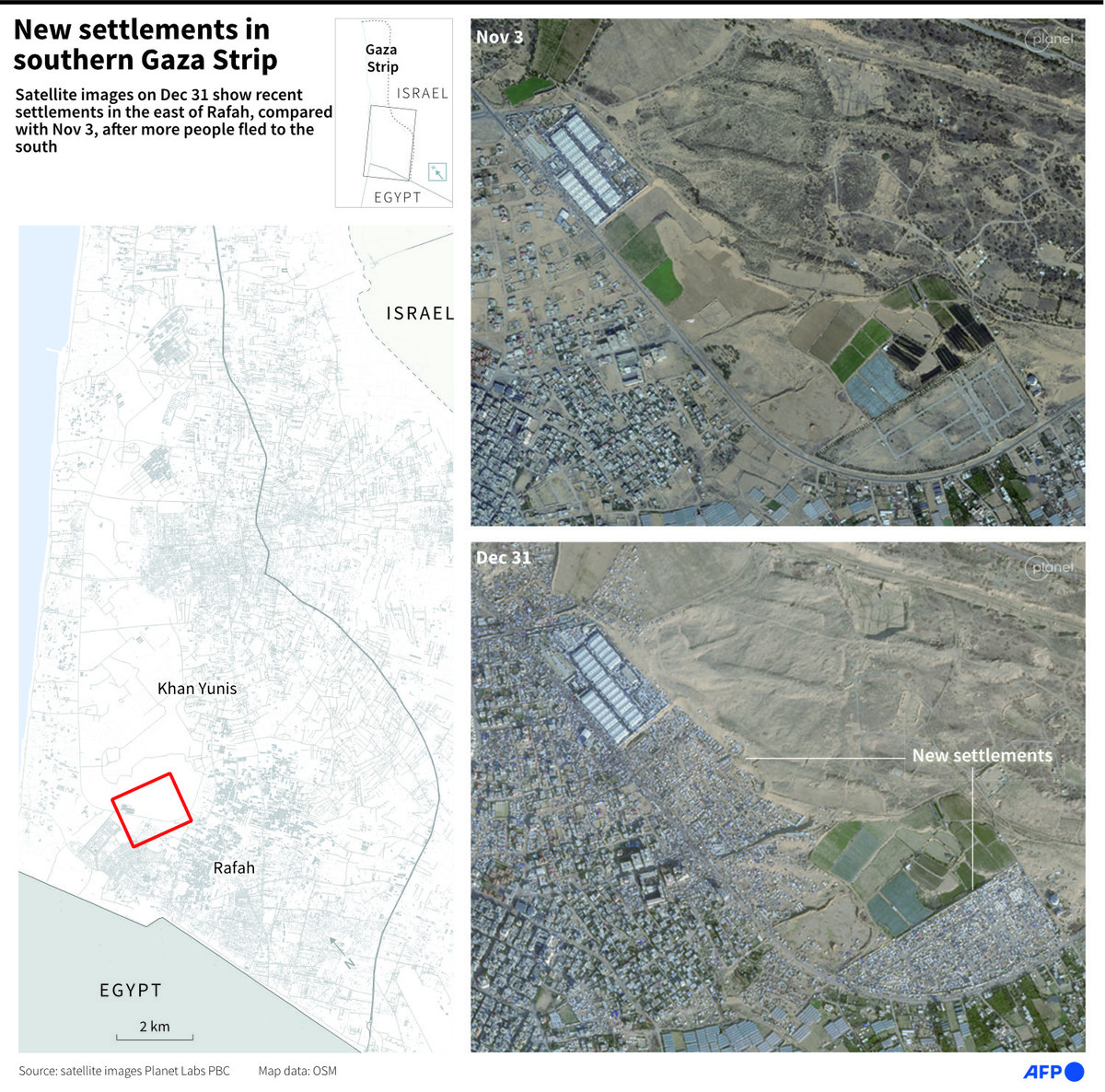
Lawmakers in Israel have responded angrily to the measures. Amit Halevi of Netanyahu’s Likud party called an urgent meeting of the Knesset Economic Affairs Committee to explore how to aid the “simple families working in agriculture” who had been sanctioned.
Rights monitors, meanwhile, have described the sanctions as mere political window dressing by governments that are otherwise content to continue funding, supplying arms and providing diplomatic cover to Israel’s war effort.
Budour Hassan, an Israel-Palestine researcher for Amnesty International, said the sanctions were something of a double-edged sword. She told Arab News that while they indicated the international community had taken notice, they ignored the real issue.
“They’re deceptive, contributing to an idea that it is individual settlers, not the settlements, being the problem, ignoring the violence inherent to the settlement enterprise,” said Hassan.
“The majority of settlers are not violent; they don’t attack Palestinians. But it is not just physical violence. It is forced acquisition of Palestinian land, segregation of communities. The rights and privileges of settlers discriminating against Palestinians. It is all inherently violent.
“It is checkpoints, Israeli soldiers, the legal, physical, and political infrastructure combining to promote the enterprise that is the issue. Punishing individuals ignores these root problems.”
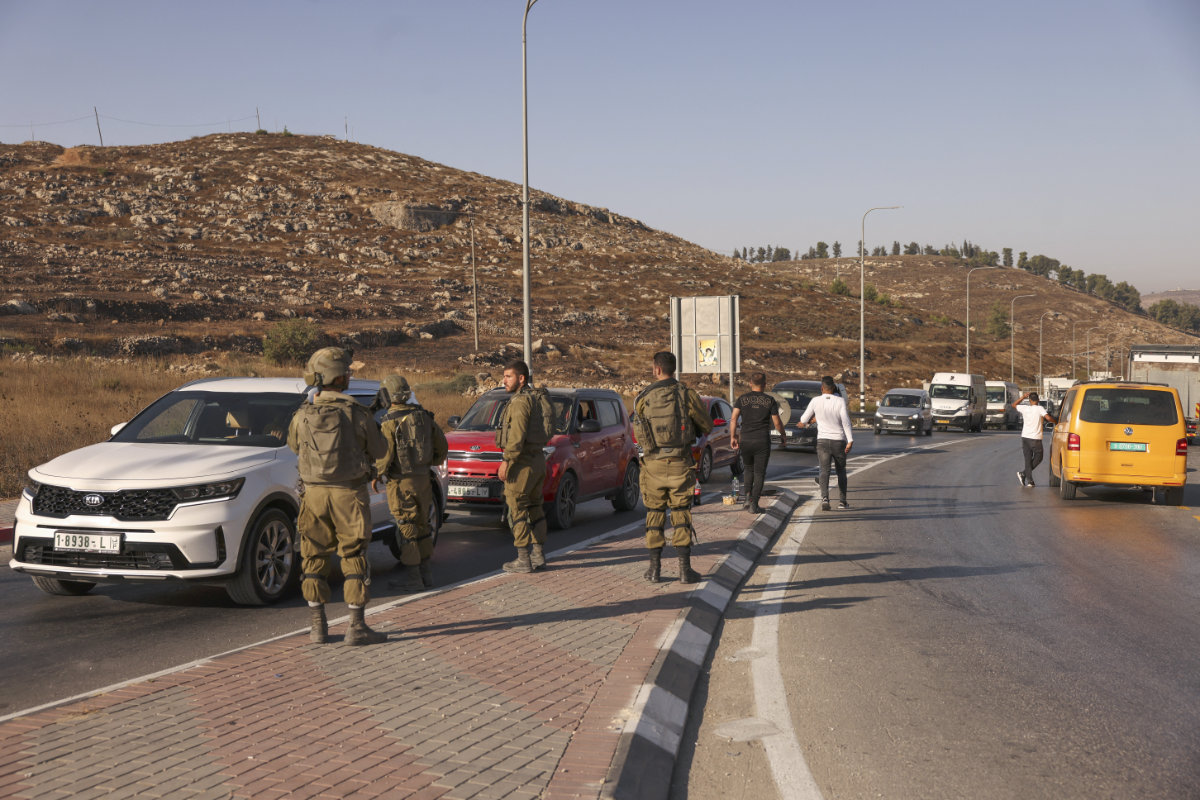
Israeli security forces man a checkpoint at the closed-off southern entrance of Hebron city in the occupied West Bank near the Israeli settlement of Beit Haggi. (AFP)
Hassan reiterated Amnesty International’s long-held view that “settlements that are illegal under international law” must be dismantled for peace to be achieved.
However, the notion of dismantling these settlements raises questions about the fate of settler families, “if and when Israel withdraws,” said Mizrachi.
“Israel evacuated settlers twice in the past. First in 1982 from Sinai and then again in 2005 from Gaza Strip and the north of the West Bank. As we know, if there is a will, there is a way.
“It might take time and you can’t evacuate hundreds of thousands in one day, but there are possibilities to achieve this that exist.”
